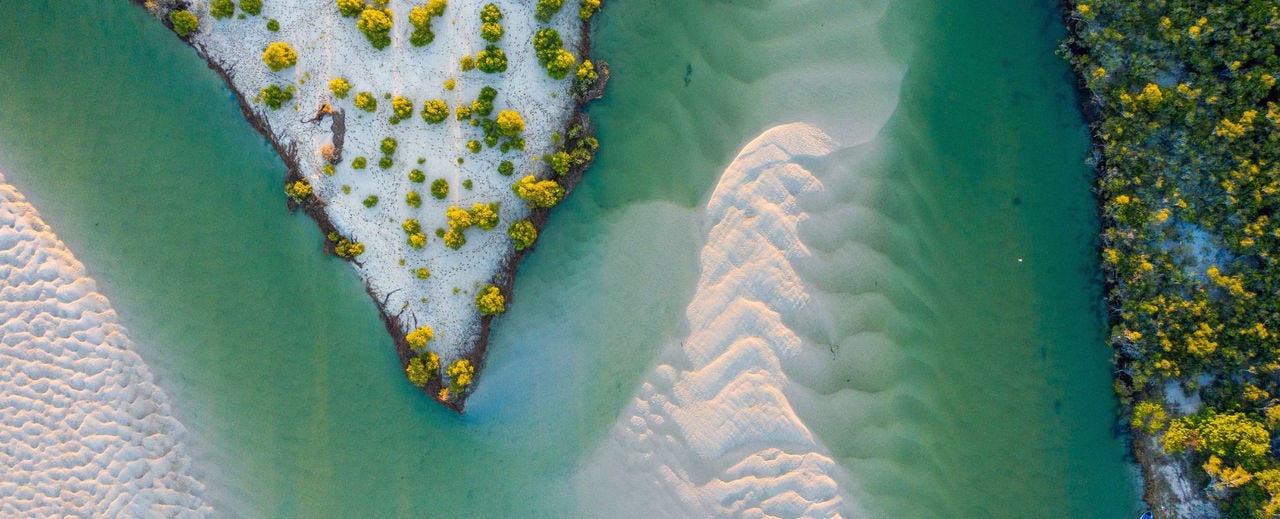India’s commitment to net zero is a vast challenge for a country of 1.4 billion people. Hobart-based consultancy Entura is helping with practical, professional assistance. The company’s team of 25 consultants based in Delhi advise on how to generate and store clean energy and integrate it into local grids. Effective energy storage makes wind and solar projects more viable.
‘Overseas companies think India is overwhelming, but the things we do touch real lives,’ says Dr Amanda Ashworth, Managing Director, Entura. ‘Enabling clean energy – and doing it in a responsible way – has a broad social impact. We are making a difference to people’s lives in India, bit by bit.’
Entura: pioneer of Tasmanian renewables
Entura is one of the world’s most experienced power and water consulting firms. It is part of Hydro Tasmania, which began in 1914 and grew to manage 54 major dams, 30 hydropower stations and a number of wind farms and remote, hybrid, renewable-energy systems.
Today, Hydro Tasmania’s consulting arm – Entura – devises practical solutions to clean energy challenges. This includes advising clients on pumped hydro energy-storage schemes. These schemes make large-scale renewable projects viable by enabling grids to sustain dispatchable power throughout the day.
India is now a key market for Entura’s consultancy and advisory services.
‘Prime Minister Modi announced a huge increase in renewable energy in India during COP26,’ says Rajeev Raina, Entura’s Team Manager and Resident Director, India. ‘Pumped hydro will play a big part, and there are plenty of opportunities for renewable energy expertise to support India’s clean energy transition.
‘The recent launch of the India-Australia Renewable Energy Partnership is a signal of the mutual collaboration in the energy sector between the nations,’ he adds. ‘It provides opportunities for companies like Entura to make a practical difference in the goals of both countries.’
A 20-year track record in India
Entura established an office in India in 2006 as part of a government-to-government initiative. The former premier of Tasmania, Paul Lennon, visited Delhi to inaugurate the endeavour.
‘It was a natural partnership,’ says Raina. ‘Entura has over 100 years of hydropower expertise, and at that time India had 50,000 MW of hydro initiatives. Our earliest work in India involved scoping and feasibility studies in Uttar Pradesh.’
Entura has experience working on 13 concrete-faced rockfill dams (CFRDs) owned by parent company Hydro Tasmania. The India office has gone on to provide CFRD advice to local clients.
 Entura consultants at a pumped hydro dam in India.
Entura consultants at a pumped hydro dam in India.
Building expertise – and a base for work across the world
Entura is helping transfer hard-won technical expertise to India. The company is aided by its own training centre: the Entura clean energy and water institute (ECEWI). The institute helps nurture skills in hydropower, dams and other aspects of renewable energy and water infrastructure. It has delivered close to 10,000 training hours for Indian clients and partners.
‘Globally there is real pressure on the skilled workforce in renewables,’ says Ashworth. ‘ECEWI gives us the resources to go into remote regions, upskill professionals, and share insights into renewable energy technologies and markets.’
To execute projects, Entura has built a team in Delhi that is integrated with teams across Australia. Expertise includes civil, mechanical and electrical engineers, scientists and project managers. The team also includes specialists in hydropower and pumped hydro. Projects often span multiple disciplines.
‘Working collaboratively with colleagues in India has helped Entura develop business in the region,’ says Ashworth. ‘The India office is now part of our global team, and we work across time zones. In the last few years, we have become even more integrated and bonded, with virtual teaming and face-to-face visits.’
Support from Austrade
Austrade advisors in India have given executives tactical and targeted support ever since Entura set up its office in Delhi in 2006.
‘I have known Austrade’s energy advisors for 8 years now, and they are always there for us,’ says Raina. ‘They organise trade fairs and accompany us to industry networking events.’
Austrade recently assisted Entura to expand its capacity-building activities by introducing executives to the South Asia Regional Infrastructure Connectivity Framework. This has opened up training opportunities for ECEWI. It also helps build relationships between Entura and participants working across hydropower, dams and renewables from the whole region.
Austrade also puts Entura in contact with prospective customers.
‘We have a stringent process for selecting clients,’ says Raina. ‘If Austrade refers a client to us we have more confidence in the organisation’s credentials.’
Social impact in remote communities
Entura has built credibility in mitigating the social and environmental impacts of major infrastructure projects. The consultancy is now bringing this expertise to India.
‘We work hard to make sure projects meet our stringent sustainability guidelines,’ says Ashworth. ‘It’s crucial that advancing the global clean energy transition does not come at the expense of local environments and communities.’
Ashworth says Entura’s team in Delhi is making a positive impact on hydro designs and project execution in India.
‘Today, there are plenty of opportunities in India to make progress towards net zero, including in solar and pumped hydro,’ she says. ‘Entura is a small company in global terms, but we are proud of the work we are doing and really feel we are making a difference.’






